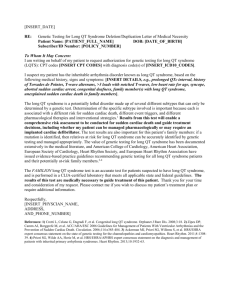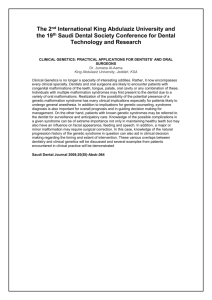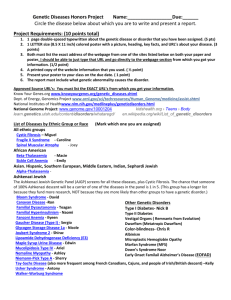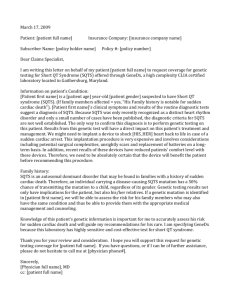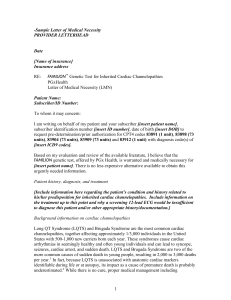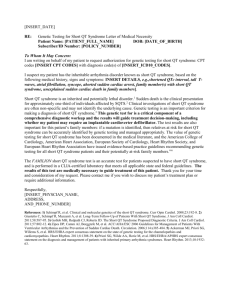Long QT Syndrome (LQTS)
advertisement
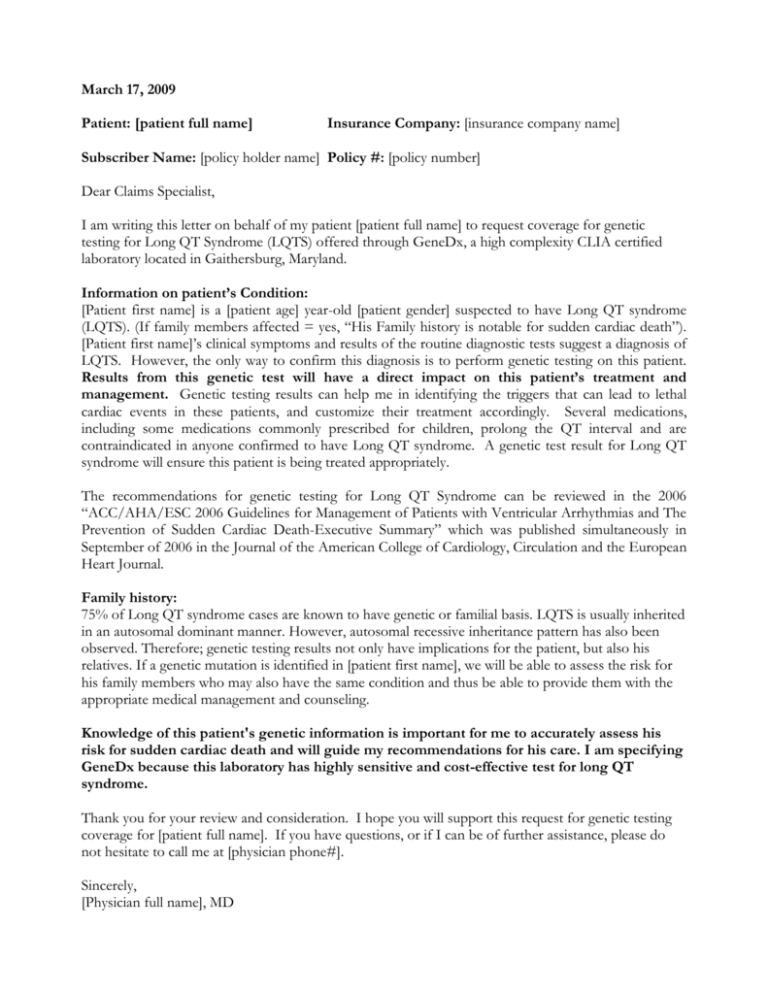
March 17, 2009 Patient: [patient full name] Insurance Company: [insurance company name] Subscriber Name: [policy holder name] Policy #: [policy number] Dear Claims Specialist, I am writing this letter on behalf of my patient [patient full name] to request coverage for genetic testing for Long QT Syndrome (LQTS) offered through GeneDx, a high complexity CLIA certified laboratory located in Gaithersburg, Maryland. Information on patient’s Condition: [Patient first name] is a [patient age] year-old [patient gender] suspected to have Long QT syndrome (LQTS). (If family members affected = yes, “His Family history is notable for sudden cardiac death”). [Patient first name]’s clinical symptoms and results of the routine diagnostic tests suggest a diagnosis of LQTS. However, the only way to confirm this diagnosis is to perform genetic testing on this patient. Results from this genetic test will have a direct impact on this patient’s treatment and management. Genetic testing results can help me in identifying the triggers that can lead to lethal cardiac events in these patients, and customize their treatment accordingly. Several medications, including some medications commonly prescribed for children, prolong the QT interval and are contraindicated in anyone confirmed to have Long QT syndrome. A genetic test result for Long QT syndrome will ensure this patient is being treated appropriately. The recommendations for genetic testing for Long QT Syndrome can be reviewed in the 2006 “ACC/AHA/ESC 2006 Guidelines for Management of Patients with Ventricular Arrhythmias and The Prevention of Sudden Cardiac Death-Executive Summary” which was published simultaneously in September of 2006 in the Journal of the American College of Cardiology, Circulation and the European Heart Journal. Family history: 75% of Long QT syndrome cases are known to have genetic or familial basis. LQTS is usually inherited in an autosomal dominant manner. However, autosomal recessive inheritance pattern has also been observed. Therefore; genetic testing results not only have implications for the patient, but also his relatives. If a genetic mutation is identified in [patient first name], we will be able to assess the risk for his family members who may also have the same condition and thus be able to provide them with the appropriate medical management and counseling. Knowledge of this patient's genetic information is important for me to accurately assess his risk for sudden cardiac death and will guide my recommendations for his care. I am specifying GeneDx because this laboratory has highly sensitive and cost-effective test for long QT syndrome. Thank you for your review and consideration. I hope you will support this request for genetic testing coverage for [patient full name]. If you have questions, or if I can be of further assistance, please do not hesitate to call me at [physician phone#]. Sincerely, [Physician full name], MD cc: [patient full name]
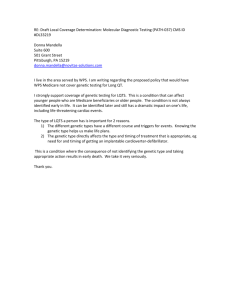
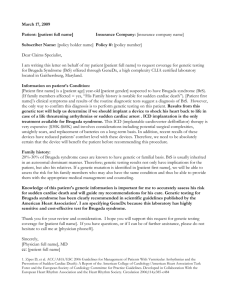
![[INSERT_DATE] RE: Genetic Testing for Long QT Syndrome Letter](http://s3.studylib.net/store/data/007372485_1-c0b69faa8e06692cadd2ba474060b7b4-300x300.png)
